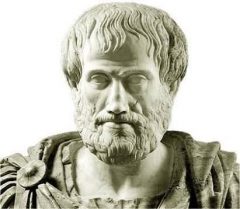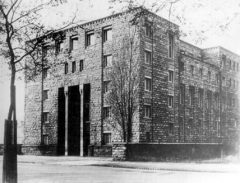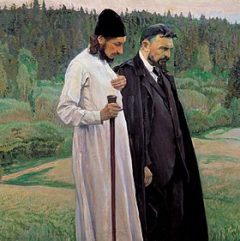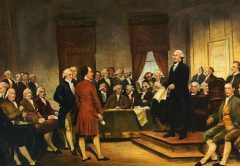PHIL 3000: Topics in Ancient Philosophy: “Aristotle’s Ethical Theory”.

Instructor: Erik Stephenson
[0.5 Credit] Winter 2021
In this course, we will engage in a close reading of the whole of Aristotle’s Nicomachean Ethics. Like so many other works of ancient moral theory, the Nicomachean Ethics is principally concerned with the nature of human happiness and the means to its attainment. Our primary aim will thus be to get clear on Aristotle’s account of both. In the process, we shall endeavour to elucidate Aristotle’s stance on such fundamental questions of moral philosophy as: its proper method; the purpose of the state and the relation between moral philosophy and political science; the nature and varieties of moral virtue; the nature of choice and moral agency; the cognitive and affective components of moral action; the nature and varieties of moral weakness and moral fortitude; the nature and moral significance of friendship; and the nature and value of philosophical wisdom (or contemplation). There is no overstating the influence the Ethics has had on the history of moral philosophy. Our progress in this course will thus be facilitated – but also complicated – by the very long history of the reception of, and commenting upon, this seminal work. We will look to this history often to guide us in our reading, to offer different interpretive vantage points, and to feed our critical reflections. Finally, since Aristotle began his philosophical career as a student in Plato’s Academy, and he clearly learned a great deal from his master, we will read the Nicomachean Ethics with an eye to relevant Platonic texts and teachings.
PHIL 3009: Topics in European Philosophy: “The Frankfurt School”

Instructor: Philippe-Antoine Hoyeck
[0.5 Credit] Winter 2021
The Frankfurt School is a tradition of Marxist philosophical and sociological research originating at the Institute for Social Research in Frankfurt, Germany. Frankfurt School Critical Theory distinguishes itself from traditional philosophical theorizing in that it is self-consciously geared toward effecting concrete political and social change. It is preoccupied, among other things, with critiquing the ideology and institutions of modern, capitalist society, and with articulating the conditions of social emancipation. In this course, we will undertake a survey of the tradition of Critical Theory from its inception in the 1930s to the present day. We will focus primarily on the question of whether modern societies might have the potential to promote emancipatory social change. We will trace this line of questioning from the work of first-generation theorists like Max Horkheimer, Theodor Adorno, and Herbert Marcuse through to the writings of the second-generation theorist Jürgen Habermas. We will then close our discussion by exploring some more contemporary attempts to concretize some of the insights of Critical Theory into a viable socialist project by the third-generation theorists Axel Honneth and Nancy Fraser.
PHIL 3010: Philosophical Traditions: “Russian Philosophy”

Instructor: Iva Apostolova
[0.5 Credit] Fall 2020
The course aims at creating a panoramic view of what is known as “Russian philosophy”. It introduces students to some of the main figures in Russian thought from 18th to 21st Century. The course is structured both chronologically and thematically. We will familiarize ourselves with Russian philosophers from both parallel and contrasting philosophical and intellectual traditions, such as Slavophiles, Westernizers, Existentialists, Revolutionaries, Nihilists, and Philosophers of Language. In learning about the different schools of thought, we will draw parallels with various Western philosophical traditions.
PHIL 3330: Topics in History of Social and Political Philosophy: “The Social Contract and Its Critics”

Instructor: Gabriele Contessa
[0.5 Credit] Fall 2020
The notion of a social contract plays a central role in much modern and contemporary Western political thought. According to social contract theory, the social contract is the real or hypothetical agreement on which society is founded and which, among other things, grounds the legitimacy of political authority. In this course, we will read both modern and contemporary proponents of social contract theory as well as some of its critics. Readings will include selections from Thomas Hobbes’ Leviathan, John Locke’s Second Treatise on Government, Jean-Jacques Rousseau’s The Social Contract and Discourse on the Origin of Inequality, Karl Marx’s Grundrisse, Rawls’ A Theory of Justice, Carole Pateman’s The Sexual Contract, and Charles Mills’ The Racial Contract. The course will be run like a seminar (which means that the instructor will not lecture but will lead the discussion but you will be expected to do the readings and participate in the class discussion)